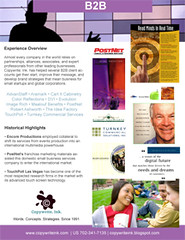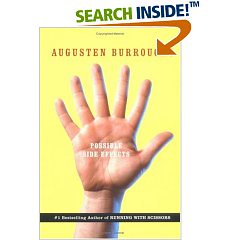There are hundreds of comments critiquing Katie Couric and her debut on Tuesday as a “CBS Evening News” anchor and the first woman to solo anchor for a major broadcast network newscast. Whether you think she seemed to struggle to keep a lid on her trademark perkiness or not, public relations professionals should take note.
National news, much like local news, has been and continues to trend toward interactive entertainment. From asking viewers to send in potential Couric sign-off lines to including a new regular feature called "Free Speech," a segment of opinion and commentary from a wide range of Americans, it's clear that the network has a new formula in mind for the future of news.
As Greg Kandra, CBS editor, wrote on one of several CBS blog strings: "Katie intends for this blog to be a dialogue, not a monologue. Don't be bashful. Most postings will have a comment section, so feel free to post and comment and tell us what you really think."
Why? News commentary and controversy have become the norm and CBS is struggling to emerge with something fresh for television by borrowing something old from radio: active participation. It's an interesting concept that means public relations professionals should prep clients as if they are attending a public forum as well as a media interview.
For the public, as the trend solidifies, it means even more difficulty in discerning fact from opinion, especially as more and more reporters seem eager to polarize what once was their common ground to find the truth. In today's world, the only common ground seems to be that criticism delivered Olberman-style means stealing tomorrow's headlines and public interest or that presenting to extremely polar opposite guests always makes for interesting, if nonsensical, controversy.
Nowadays, the truth is often, not always, somewhere in the ever-expanding middle. Personally, I hope the public knows it.
National news, much like local news, has been and continues to trend toward interactive entertainment. From asking viewers to send in potential Couric sign-off lines to including a new regular feature called "Free Speech," a segment of opinion and commentary from a wide range of Americans, it's clear that the network has a new formula in mind for the future of news.
As Greg Kandra, CBS editor, wrote on one of several CBS blog strings: "Katie intends for this blog to be a dialogue, not a monologue. Don't be bashful. Most postings will have a comment section, so feel free to post and comment and tell us what you really think."
Why? News commentary and controversy have become the norm and CBS is struggling to emerge with something fresh for television by borrowing something old from radio: active participation. It's an interesting concept that means public relations professionals should prep clients as if they are attending a public forum as well as a media interview.
For the public, as the trend solidifies, it means even more difficulty in discerning fact from opinion, especially as more and more reporters seem eager to polarize what once was their common ground to find the truth. In today's world, the only common ground seems to be that criticism delivered Olberman-style means stealing tomorrow's headlines and public interest or that presenting to extremely polar opposite guests always makes for interesting, if nonsensical, controversy.
Nowadays, the truth is often, not always, somewhere in the ever-expanding middle. Personally, I hope the public knows it.




















